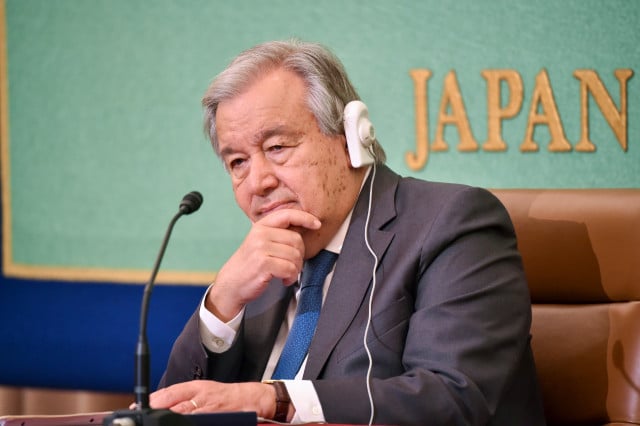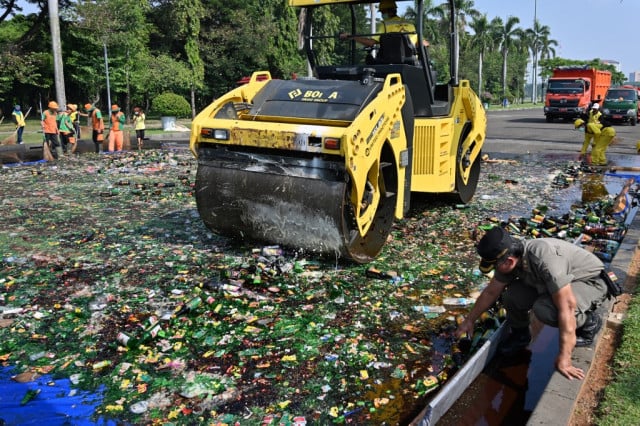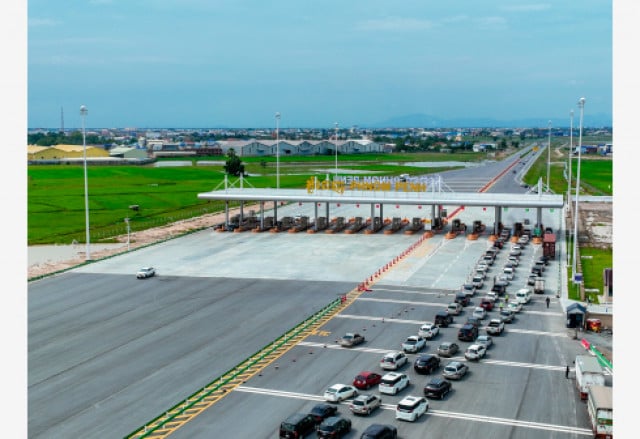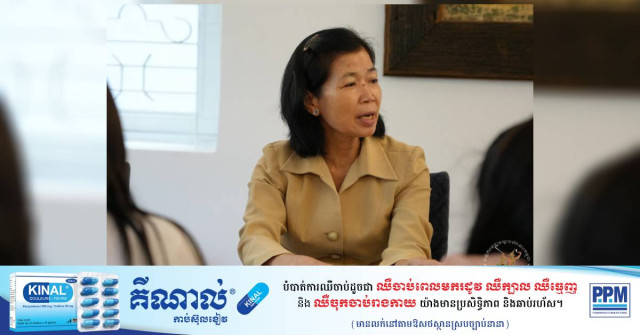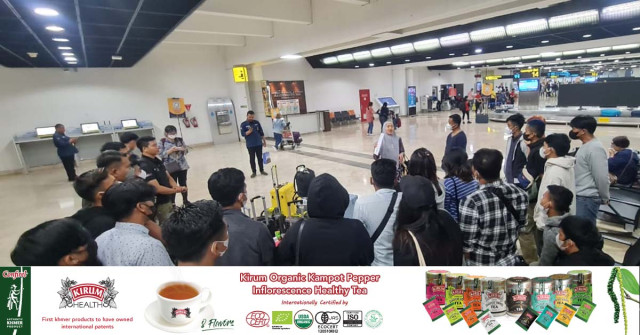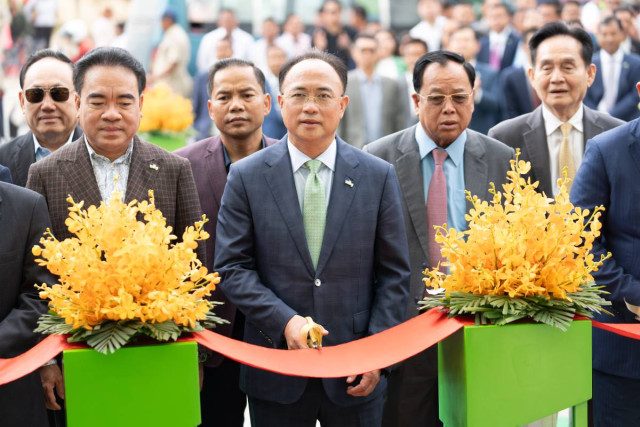Systematic Labor Rights Violations Need to Be Addressed!
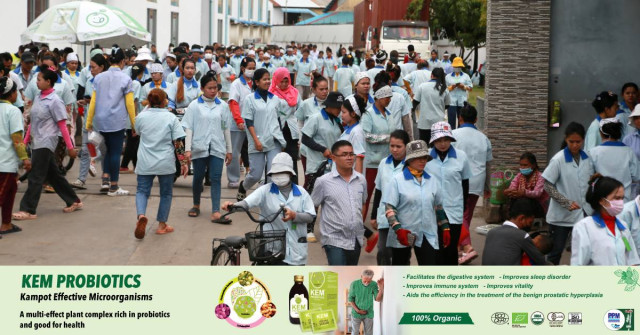
- By Khun Tharo
- February 13, 2024 4:10 PM
At least 20 prominent independent trade union coalitions, associations, and trade union support group organizations provided a thematic report on the labor rights situation in Cambodia for the upcoming Universal Periodic Review (UPR) pre-session in Geneva this Tuesday.
In the previous UPR cycle, countries including the United States, Sweden, France, Belgium and Finland made concrete recommendations on improving labor rights to the Royal Government of Cambodia (RGC). These nations called on the Government to take all necessary measures to guarantee that the fundamental freedoms of workers in Cambodia are fully respected and that trade unionists can conduct their activities in a climate free of intimidation, threat or harmfulness to their personal security. In addition, these nations called on the Government to ensure that the legislative framework and labor policies enable trade unions to exercise their rights to freedom of expression, association and peaceful assembly.
Over the last three years, there have been significant encroachments on civic space as seen in the intensification of attacks on independent trade unions and labor organizations. We observe that the independent union and labor movement in Cambodia is not merely under threat, but is being specifically and systematically targeted. The recent decision made by the European Commission to partially withdraw Cambodia from the Everything But Arms (EBA) trade preference scheme was based on identified serious systematic violations of the principles of the International Convention on Civil and Political Rights (ICCPR), notably the rights to Freedom of Association and Freedom of Assembly as outlined in the International Labour Organization (ILO) recommendations referred to the violation of the ILO core conventions No. 78 on freedom of association and No. 98 on collective bargaining.
While the RGC and the Ministry of Labour and Vocational Training have introduced amendments to the Labor and Trade Union Laws, these changes are largely tokenistic, for they do little to address the core problematic issues with these laws nor align them with international standards.
Firstly, we face severe challenges in union registration and collective bargaining. Burdensome procedures for union registration and dues collection at factories with collective bargaining agreements are impeding freedom of association, a right protected under ILO Conventions and the ICCPR. We observe a troubling pattern of union applications being rejected for trivial errors, and an arduous process for Most Representative Status certification, which hinders the ability of the workers to unionize. Based on data compiled by members of this submission, at least one federation registration and 32 enterprise-level union registrations remain pending as of February 2024, some for more than a year.
Secondly, the judiciary's obstruction in labor dispute resolution has limited access to justice. There is an emerging trend of labor disputes being miscategorized to avoid arbitration, coupled with a lack of effective and timely legal remedies for workers in national courts. This misclassification of disputes and the current inaccessibility of the Arbitration Council for individual labor disputes is concerning. Workers experience undue delays in having their cases heard, and the lack of an independent, impartial judiciary compounds their bid for justice. As of February 2024, we have counted at least 69 cases of unfair court decisions and misclassifications whereby these cases have not been able to reach the Arbitration Council, leaving adjudication by the national courts to be the only recourse.
Thirdly, we wish to highlight the systematic use of Fixed Duration Contracts (FDCs) as a tool for anti-union discrimination. Guidelines from the Ministry of Labour have undermined the established Labor Law, allowing employers to avoid transitioning workers to permanent employment status, thus weakening job security and collective bargaining rights. Based on data collected by independent unions and federations, at least 33,923 workers from 49 factories are still employed on FDCs even though they should rightfully be under Unlimited Duration Contracts (UDCs). A total of 630 workers on FDCs were not rehired after establishing a union.
Furthermore, restrictions on peaceful assembly and expression have been exacerbated by the implementation of COVID-19 regulations, which have been used to limit protests and strikes. This is a clear violation of rights enshrined in the ICCPR and the Cambodian Constitution. After NagaWorld laid off 1,329 casino workers in April 2021 and workers from the Labor Rights Supported Union of Khmer Employees engaged in a peaceful, well-publicized strike, the police physically assaulted and arrested striking workers under the pretext of COVID-19 regulations.
We also observe a troubling trend of criminalization and discrimination against union leaders and labor rights activists. Judicial harassment, criminal charges, and threats against union members are prevalent, creating an environment of fear and repression. Independent unions and workers’ interests are inadequately represented in government councils and there is an uneven development of rules and policies for workers in underrepresented sectors.
Protection mechanisms against gender-based violence remain below the necessary international standards, significantly impacting women. Widespread abuse in sectors like garment manufacturing and entertainment includes discriminatory practices against pregnant workers and those with disabilities, and the targeted harassment of female union leaders.
Finally, Cambodia’s institutional and normative framework still fails to protect migrant workers. Without any governmental limit on recruitment fees, many workers incur debts to cover migration expenses. The lack of proper documentation restricts their access to justice, social security, and healthcare in host countries.
To address these challenges, the Royal Government of Cambodia (RGC) must take concrete steps and action with the following recommendations;
- Simplified union registration and "Most Representative Status" certification processes.
- Properly classified labor disputes, and an effective, independent Arbitration Council.
- The revocation of ministerial guidelines that undermine the Labor Law, particularly regarding Fixed Duration Contracts.
- Amendments to regulations that limit peaceful assembly and the right to strike.
- The protection of union leaders from violence, discrimination, and criminalization.
- The inclusive representation of independent unions in wage and labor councils.
- Clearly defined legal protections against gender-based violence at work and the ratification of ILO C190.
- Enhanced migrant worker protections and the ratification of relevant conventions, such as ILO C181 on ethical recruitment and the International Convention on the Protection of the Rights of All Migrant Workers and Members of Their Families
Addressing the existing human rights and labor rights concerns is essential for the full reinstatement of the EBA trade preferences as well as preparing Cambodia to obtain the U.S. Generalized System of Preferences (GSP), a trade preference scheme which requires a real and credible commitment by the Cambodian government.
Khun Tharo is the program manager at the Center of Alliance of Labor and Human Rights (CENTRAL).






